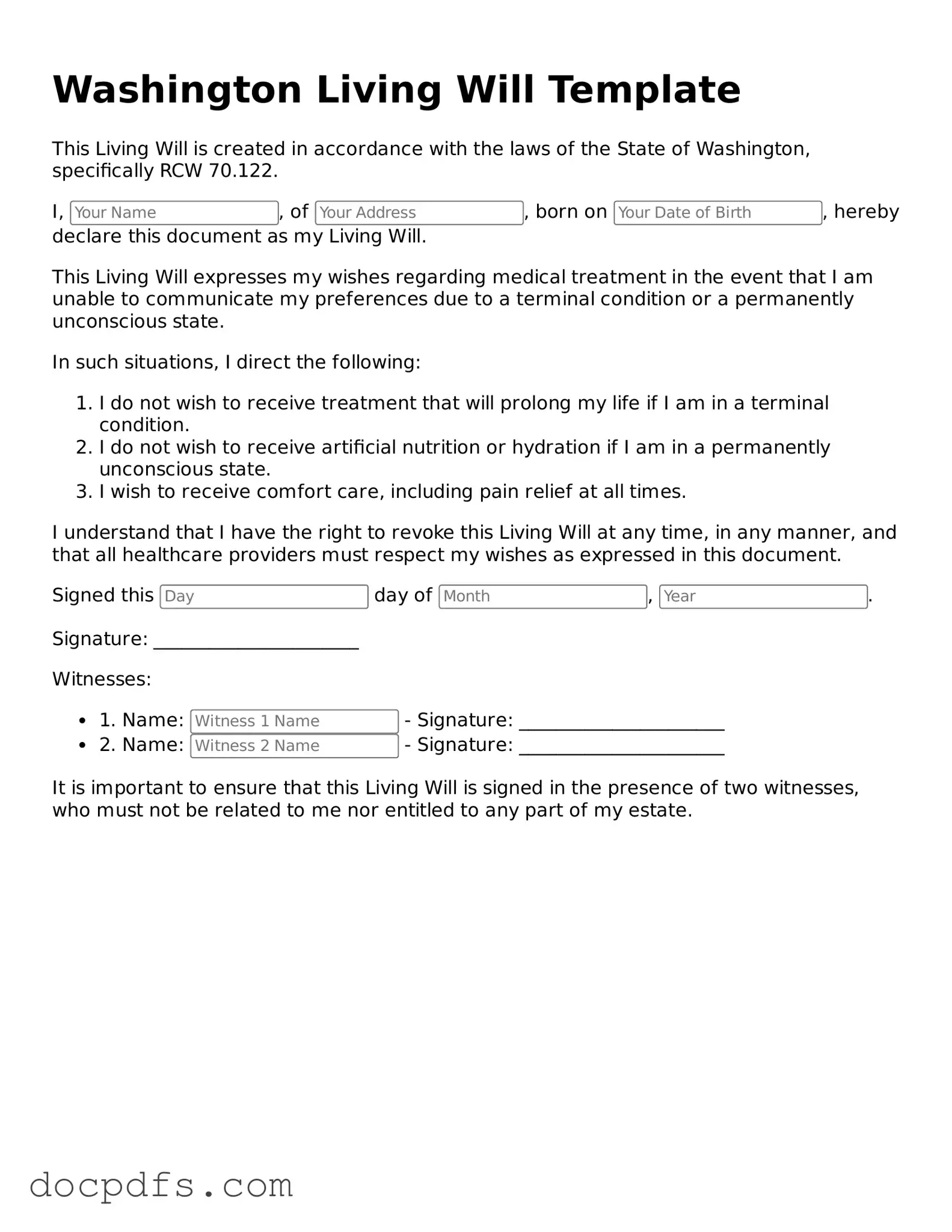What is a Washington Living Will?
A Washington Living Will is a legal document that allows individuals to express their wishes regarding medical treatment in the event they become unable to communicate their preferences. This document typically outlines the types of medical interventions a person would or would not want if they are facing a terminal condition or are in a persistent vegetative state.
Who can create a Living Will in Washington?
Any adult who is at least 18 years old and of sound mind can create a Living Will in Washington. This includes individuals who are making decisions about their healthcare and want to ensure their wishes are respected if they are unable to communicate them in the future.
What should be included in a Living Will?
A Living Will should clearly state your preferences regarding medical treatments. Key elements to consider include:
-
Specific medical interventions you want or do not want, such as resuscitation, mechanical ventilation, or tube feeding.
-
Your wishes regarding pain relief and comfort care.
-
Any religious or personal beliefs that may influence your healthcare decisions.
How is a Living Will different from a Durable Power of Attorney for Healthcare?
A Living Will focuses specifically on your wishes for medical treatment, while a Durable Power of Attorney for Healthcare designates a person to make healthcare decisions on your behalf. It is possible to have both documents, allowing you to express your preferences while also appointing someone you trust to make decisions if you cannot.
How do I make my Living Will legally valid in Washington?
To ensure your Living Will is legally valid, you must sign it in the presence of two witnesses or have it notarized. Witnesses cannot be related to you, cannot be entitled to any part of your estate, and must be at least 18 years old. Notarization provides an additional layer of authenticity, confirming your identity and intent.
Can I change or revoke my Living Will?
Yes, you can change or revoke your Living Will at any time, as long as you are of sound mind. To revoke it, you can destroy the document or create a new Living Will that explicitly states your new wishes. It is advisable to inform your healthcare provider and any appointed agents of your changes to avoid confusion.
Where should I keep my Living Will?
It is important to keep your Living Will in a safe yet accessible location. Consider providing copies to your healthcare provider, family members, and anyone you have designated as your healthcare agent. Additionally, you may want to carry a card in your wallet indicating that you have a Living Will and where it can be found.

